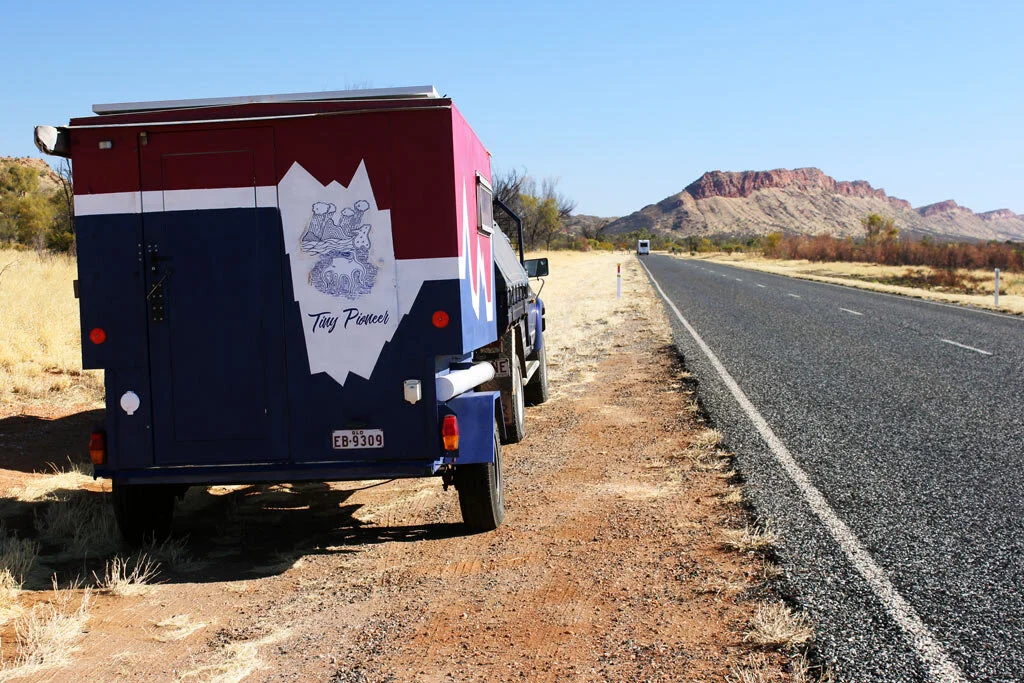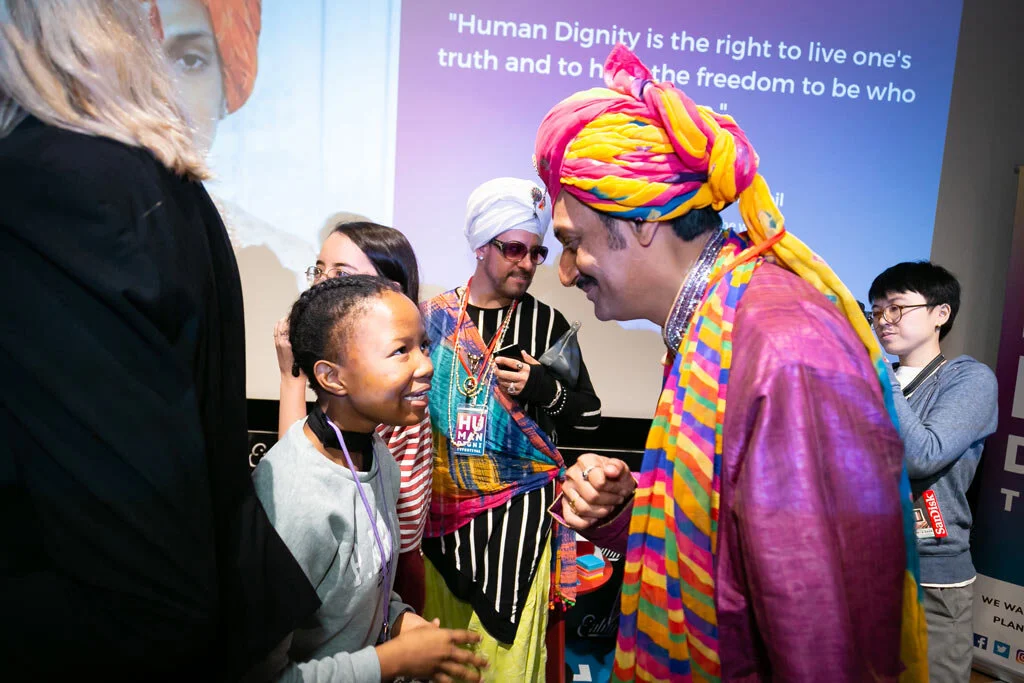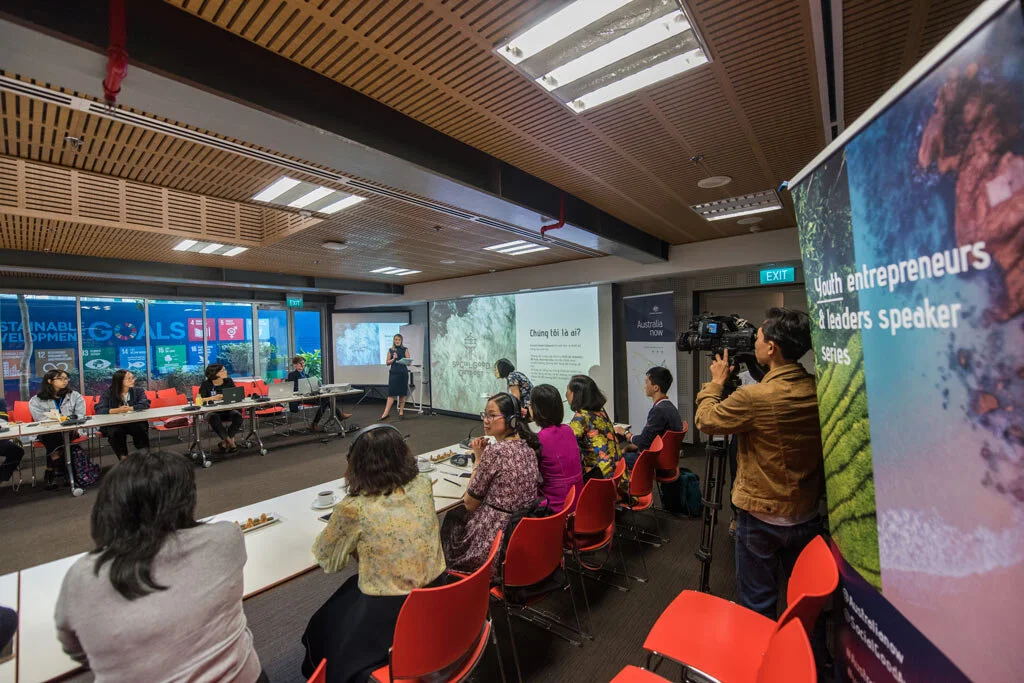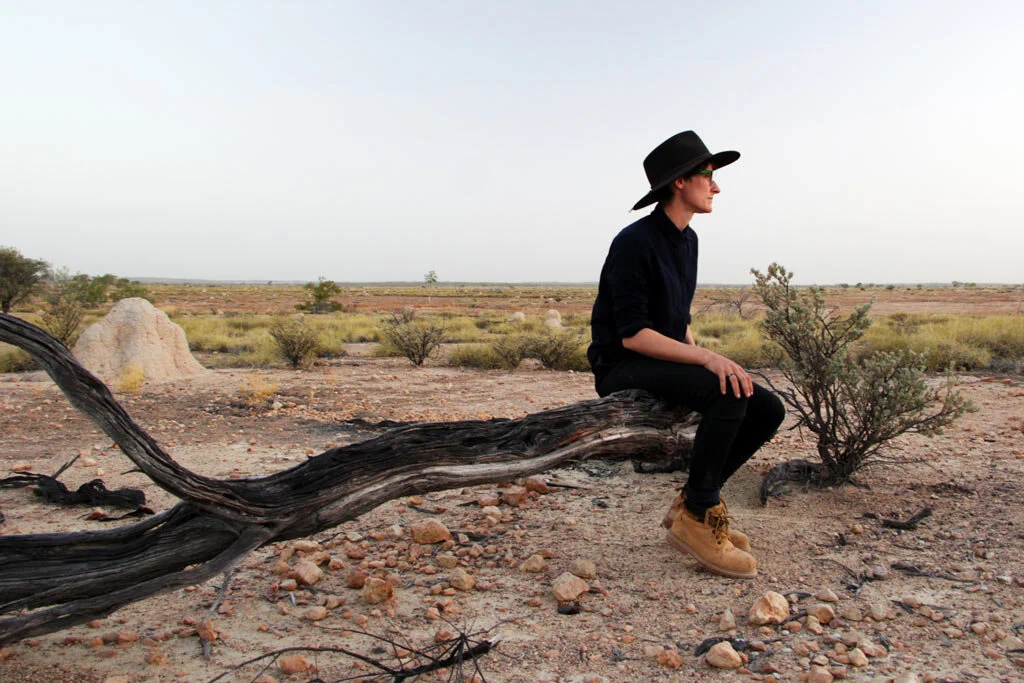Elise Stephenson On The Core Reason Someone Will Support Your Social Enterprise
Elise Stephenson is an award-winning social entrepreneur and PhD Candidate at Griffith University, Brisbane. She is passionate about gender equality and creating future-proof businesses that are sustainable, regenerative, and ethical. Together with her sister Lara, Elise is the co-founder of social enterprise digital design agency the Social Good Outpost, which uses the power of graphic, web design and creativity to create community change.
Elise works closely with government, awarded a grant by the Australian Department of Foreign Affairs and Trade to run a youth speaker series throughout Southeast Asia in 2019/2020, bringing Australian social innovation to global audiences. Elise is now recognised as one of 25 ‘Young Women to Watch’ in international affairs, one of Boston Consulting Group’s ‘30 Under 30 LGBTI+ Role Models’, and was awarded a United Nations Australia Association Community Award and Foundation for Young Australians Unleashed Award for her thought leadership and activism around social enterprise and inclusion internationally.
Elise provides insights into pioneering positive change in society (with lessons from the Australia now project), sharing lessons on design, branding and storytelling for social entrepreneurs, whilst sharing the key lesson learnt from her time on the Elevate+ Accelerator program.
Highlights from the interview (listen to the podcast for full details)
[Tom Allen] - Could you please share a bit about your background and what led to your work in the social enterprise sector?
[Elise Stephenson] - Yeah, absolutely. A lot of my work in the social enterprise sector is relatively recent and I think was spurred from my last year of high school, which was 10 years ago now, when I actually developed a bilateral hand disability. I was in my final six months of school. I wasn't able to complete any of my assessments or exams, and at that point in time, I really hit a bit of a rock bottom point. And I thought, ‘oh gosh, what's my future going to look like now?’ When I looked out there at the world and I looked at traditional businesses or traditional career paths or jobs, I couldn't really see myself fitting into that world and I didn't quite know what the path ahead for me was going to be.
So very fortunately, I enrolled at Griffith University in Brisbane, and I just started following my passions at first with the help of disability services. I did a lot of work across southeast Asia, a lot of work in our region. And it was actually when I was over in Taiwan in 2013, I was part of the Brisbane Lord Mayor's delegation to the Asia Pacific City Summit that I saw this presentation from some young people who were pitching social enterprises. And I thought, ‘oh my goodness, what is this notion of a social enterprise?’ Being there at this really fantastic meeting of global leaders was great. When we all came back to Brisbane, I met up with some of those other young people that I saw pitching and we put our heads together. And actually Australia's first, (that we know of), youth social enterprise conference, run entirely by youth for youth, was created just nine months later in 2014. And that was Impact Social Enterprise Conference.
Wonderful.
That was really cool. But after that, it took me another few years to actually get into social enterprise myself. Now we've been running Social Good Outpost for the last three years. And it was really just that natural extension of back when I was in school thinking about the world and how I could do things differently. And basically seeing that there are way more options out there for how we create future-proof businesses that are sustainable, ethical, and a little bit more inclusive and can kind of respond better to the needs that we have today. So that's broadly speaking how I got here.
You mentioned the Social Good Outpost. As Co-Founder of that, what sort of projects are you involved in?
We are predominantly a graphic and web design company and we work with all kinds of organisations spanning from community development, social enterprises, nonprofits, right through to government and traditional business. But we do so using a social enterprise business model. For every 10 hours of full cost design we provide/sponsor one hour pro bono. And it's allowed us to work over the last three years with over 60 sponsored projects totalling just over $100,000 of time spent.
In our first year, the majority of our services were actually provided to some really cool organisations in the domestic violence prevention sector. Basically recognising that there are specific needs that people across different sectors need when it comes to communicating what they do and basically who they are. In our second year we really focused on rural and regional outreach. And over the past three years we've actually travelled 60,000 kilometres, which is one and a half times around the earth's circumference, just in Australia to understand what are some of the design needs and creative needs of our rural and regional communities.
So working with a lot of Women's Centres across the Northern Territory, South Australia, working out in the bush in the NT. Yes, there's just some really interesting kind of work along those lines. But thirdly then came into working with a lot of minority groups. So we support or have worked with organisations working for LGBTI inclusion in the medical space. So creating platforms that can use to educate our next generation of health practitioners around LGBTI. We took this approach when we started the business that creativity, digital design, it doesn't have to be limited by what we already know. We've actually taken an approach where we also do a lot of graphic and web design and kind of branding workshops in our region. Last year we headed to Hong Kong to help with a human rights festival and this year we're doing this really cool project with the Australian Federal Government. So taking creativity to it's full extent in the services that we provide to our communities.
Absolutely. You mention the Federal Government project, which is with DFAT. So tell us more about this. What have you learned from Australia now?
Yeah, so essentially the Australian government each year choose a country or region of significance in the world to invest time in, basically celebrating and showcasing Australian excellence across a number of spheres. This might be agriculture, might be business, technology, community, gender equality, all kinds of spheres. Very, very excitingly, in 2019 we had a focus on the ASEAN region, so Southeast Asia, 10 countries across Southeast Asia, and we had a focus on youth. This was a real milestone and I think something that we as Australians should be very proud of because it's actually allowed me to partner with the Department of Foreign Affairs and Trade and create a youth entrepreneurs and leaders speaker series where we bring forefront young Australian speakers to the region to collaborate, connect and build partnerships for the future.
We've got some big issues out there. Climate change is obviously forefront on many of our minds right now, but we're also looking at regional stability.
How can we grow sustainable and regenerative economies? When we think of all of these issues, we've really got to look at the next generation and how we are equipping them, not only with the critical thinking around, A) creating business in sustainable and socially responsible ways, but B), how can we build those connections so that everyone can collaborate for the future?
Knowing that we need collaboration as a globe to be able to function well.
Having said that, some of my biggest learnings from this program so far, (and we've ran just over 30 events across Southeast Asia in the last five months with just over 2000 young people), is that change makers across Southeast Asia, if they are in oppressive regimes or they've come from governments that may be quite controlling over what they can and can't do, often change makers go into business or they go into creative industries. That means we've got a real opportunity there. If you're trying to pioneer change in society, often it will be through these really great ways of doing business where you can actually prove that your idea has traction because money talks, and this has been a really great way to advocate for the governmental change. I've also noticed that there are more young people starting business than ever. And I think in Indonesia there are 6 million members of their youth enterprise council. I mean that's just phenomenal…
Yeah, that's huge.
When we think about what we're doing here in Australia. There's some really great opportunities to learn from these young entrepreneurs. But the thing that I'd say there too is that when young people are starting businesses in the region, they often don't have that social responsibility element. And so that's where Australia has really been able to step up and show, ‘hey, are we thinking about the environment when we're creating these new businesses? Or are we thinking about this element of gender equality or how it will affect Indigenous populations?’ So that's been a really interesting thing to note.
My final point would be that working with young people gives us opportunities to tackle more sensitive issues. As a country and as a government, we often go across to work in the international space and we might want to create stronger business opportunities or collaborate over particular issues of social justice. Actually you can get a lot of traction if you involve young people in the room. I found that people are much more willing to talk. It's much easier to get people in the room. It's been a really fantastic way of getting support because at the end of the day, if you've got a young person who's starting an enterprise, whether this is a good thing or not, they'll often get much more attention than say if you're in your 40s or 50s and starting an enterprise.
What have you learned from Australia now? [Continued…]
There's this real ability to draw on youth as the way forward when it comes to not just building our networks in Australia and the Asia Pacific region, but then building the strength of the social enterprise or change-making ecosystem more broadly.
There's some great insights there, Elise, and it's been fantastic to have some of your reports flowing into Impact Boom from the region over there. So thanks so much for that. Given your experience in branding, design and storytelling then, what advice would you give to entrepreneurs listening who lack confidence in the space?
That's been a really great part of this program is just been working essentially with a lot of entrepreneurs that are exactly in those same positions. My three things would be around branding, consistency and crafting an enduring identity is everything. When you're thinking about who you are, where you want to go, what are your goals for your social enterprise, have a look at those who you believe are doing it really well and try to see, well what elements are they using that I could use? Or how are they doing it that I could copy for myself?
When it comes to design, then quality is everything. So there's tonnes of research out there that products are more around that price and quality, and they are quite intertwined. And then they'll purchase based on impact or that social element.
From a social enterprise standpoint, that's really important to take note of because your social impact won't be the core reason that people will support your cause or buy your product. You really need to make sure that the quality's there. So ensure that you invest in the look of your brand because that will carry you.
When people haven't met you and don't know what you're doing, they'll be able to easily see you and kind of recognise whether you're credible. Whether you look like you know what you're doing, whether you're this awesome, exciting thing that they want to get part of.
And the third thing I'd say is the story that you tell matters. Think about whether you prioritise the storytelling of the social impact or whether you prioritise the storytelling of the services or products that you're creating, as that will really influence the audience. Spend some time.
Unfortunately, or maybe fortunately, branding, design, storytelling; it's an evolving beast. So you've got to make a start, get stuck in. If it's not perfect, don't worry about it. We've got to just keep trying again and evolving as we go through things I think.
That's some fantastic advice Elise. We're certainly really proud to have you as part of our Elevate+ Alumni. So with program applications now open again for this Accelerator Program, what was one piece of advice that you took from the program that would be really valuable to any of the other social entrepreneurs or aspiring entrepreneurs listening?
I think that the one piece of advice that really stuck with me was the fact that successful social enterprises are successful businesses.
The big message that I got was spend time working on your business model and how to make money, how you are going to be sustainable. Because if you aren't sustainable then you won't continue to exist as a social enterprise and it doesn't matter how good your social cause is.
So that would be my really big thing. But the second thing, if I can mention it, is that community is so important. And so I think that's one of the brilliant things that you'll get out of the Elevate+ Program or any other kind of social enterprise community.
What you put in is what you get out.
That's such good advice. So Elise, what social enterprises have you come across that you believe are doing some great work in the space and really tackling social, cultural or environmental problems?
Personally I can't go past Patagonia. I really love their leadership and I really love the fact that they're such a big business, able to make such tangible change. Next week I'm heading over to Brunei to deliver a program around sustainable fashion social enterprises. So I really want to get a shout out to some of the phenomenal brands that we'll be working with over there. There's Outland Denim, The Social Outfit, Magnitude, Team Timbuktu, Full Circle Fibres and of course you can't go past Boomerang Bags. So check out all of those enterprises. I think they're doing some really great pioneering stuff and making us think a little bit more about how social enterprise and sustainability; that comes right down to all of the fabric we wear, the kind of the lounges we sit on, all of those fabrics and materials, they're all a part of this solution too.
To finish off then Elise, what books or resources would you recommend to our listeners?
My all time favourite book has to be Walden by Henry David Thoreau. I think that there are just so many philosophies there that underpin what it means to be a good social entrepreneur, to be thoughtful and careful about the environment and the world that we're creating around us. So you can't go past that. And actually there's so many great quotes of his, but one of my favourites is,
"Our life is frittered away by detail. Simplify, simplify." And I think it couldn't be more true for social enterprises.
Simplify down to the message you're trying to tell and the impact you're trying to make.
Further to that, I'd say Antifragile is an awesome book. Get your hands on it. It gives you a really high level understanding of the economy and our world as we know it.
And thirdly, just a bit of fun. I really love listening to the podcast Chai Chats. It's like listening to old friends, but they tackle some really interesting and sometimes really challenging issues around what it's like to be a migrant, a young woman; a whole intersectionality of issues. So that's truly encouraged me to think differently and empathise differently with different groups in society.
Initiatives, resources and people mentioned on the podcast
Recommended books & podcast
Walden by Henry David Thoreau
Antifragile by Nassim Nicholas Taleb









